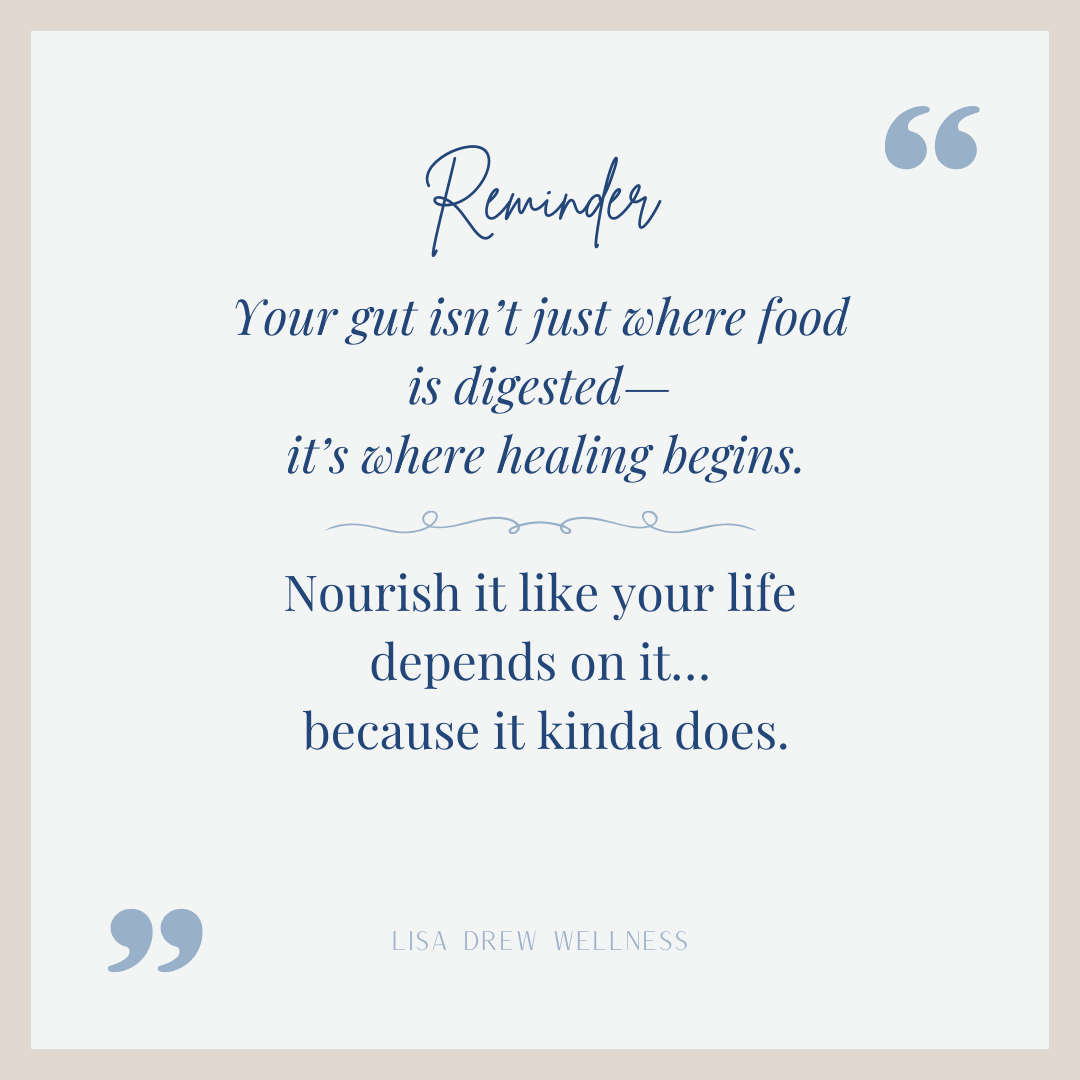Is It the Gluten or the Glyphosate? (Or Both?)
Why Your Gut Might Be Mad at You—And What to Do About It
Let’s be honest: few things are more confusing than trying to figure out why your body is feeling bloated, foggy, inflamed, or just downright off. You might be wondering, “Is it the gluten? Or is it the chemicals sprayed on my food? Or both?”
Great question—and the answer isn’t always simple.
So let’s break it down. Grab your matcha, your green juice, or your favorite cozy drink and let’s talk about what’s really going on with your gut (and how to fix it).
🧐 So... Is It a Gluten Issue or a Toxic Chemical Problem?
Here’s the truth: it can be one, the other, or both.
Some people have a true gluten sensitivity. Others react to what’s been sprayed on the wheat (and other crops) more than the wheat itself—mainly glyphosate, a toxic herbicide commonly used in conventional farming.
Even if you’ve tested negative for gluten intolerance, you could still feel awful after eating wheat because your gut is inflamed from chemical exposure. The modern food supply is complicated, and your body may be telling you that it needs cleaner, simpler fuel.
⚠️ And Let’s Not Forget: A Wheat Allergy Is a Whole Other Thing
A wheat allergy is a true immune reaction, and it’s very different from Celiac disease or a gluten sensitivity.
With a wheat allergy, your body treats wheat proteins like a dangerous invader—triggering symptoms like:
Hives or skin rashes
Swelling of the face or throat
Difficulty breathing
Nausea or vomiting
Even anaphylaxis in extreme cases
This type of reaction can be serious and life-threatening. Wheat allergies are more common in children but can develop in adults, too. If you suspect a true allergy, it’s important to see an allergist for proper testing and diagnosis.
🧬 Do You Need to Eliminate Gluten?
That depends on several key factors:
Your genetics – If you have Celiac disease or a family history of it, gluten is a hard no. It triggers an immune attack that damages the lining of your small intestine. But gluten can also worsen symptoms for people with other autoimmune conditions like Hashimoto’s thyroiditis, rheumatoid arthritis, or multiple sclerosis. In many cases, going gluten-free helps calm inflammation and supports healing.
Your gut health – If your gut lining is compromised (think: leaky gut), your body is more likely to react to proteins like gluten or toxins like glyphosate. A damaged gut = more symptoms.
Your symptoms – Do you feel bloated, foggy, anxious, achy, or tired after eating gluten-containing foods? Do your symptoms improve when you skip them for a while? Your body knows—listen to it.
The type of gluten you're eating – Most of us aren’t eating freshly milled, ancient einkorn bread from a European village. We’re eating ultra-processed, glyphosate-soaked, nutrient-depleted wheat products. That matters.
Your toxic load – If you’re eating conventionally grown grains sprayed with glyphosate (especially wheat, oats, corn, and soy), your gut may be inflamed from the chemical exposure more than the gluten itself.
Any diagnosed allergies – If you’ve been diagnosed with a wheat allergy, it’s non-negotiable. Strict avoidance is necessary.
🌿 Tips to Heal Your Gut (Whether It’s Gluten, Glyphosate, or Both)
Whether you’re dealing with gluten sensitivity, glyphosate overload, or an autoimmune flare-up, there’s good news: your gut can heal with the right support. Try these steps:
✅ 1. Eat organic when possible
Especially with grains, oats, and high-spray crops like soy and corn. This reduces your exposure to glyphosate and other toxic chemicals.
✅ 2. Try a gluten elimination trial
Remove all gluten for 30 days and track your symptoms. You might notice improvements in digestion, mood, energy, and more.
✅ 3. Support your detox pathways
Your liver and gut work together to flush toxins. Feed them well with foods like beets, broccoli, cauliflower, garlic, turmeric, leafy greens, and lemon water.
✅ 4. Repair the gut lining
Incorporate healing foods like bone broth, aloe vera, collagen, L-glutamine, and zinc. These help soothe inflammation and strengthen the gut barrier.
✅ 5. Add fermented foods
Sauerkraut, kimchi, and dairy-free yogurt help feed your good gut bugs and crowd out the bad ones. Probiotic-rich = gut-friendly.
✅ 6. Stay hydrated with filtered water
Tap water can contain residues of agricultural chemicals. Use a high-quality filter to reduce your exposure and support gentle detoxification.
✅ 7. Load up on fiber
Fiber helps move waste (and toxins!) out of your system. Go for chia seeds, flaxseed, berries, sweet potatoes, leafy greens, and lentils (if tolerated).
✅ 8. Manage stress
Stress weakens the gut lining and makes you more reactive to foods. Meditate, breathe, stretch, journal—whatever works for you, do it daily.
💛 Final Thoughts (aka: Don’t Panic, Just Get Curious)
This isn’t about labeling gluten as the enemy or fearing every slice of toast. It’s about tuning in to what your body is telling you. You deserve to feel good, and that starts with understanding what’s really going on beneath the surface.
Whether it’s the gluten, the glyphosate, the gut issues, or a little of everything—you don’t have to figure it out alone.
🎯 Ready to Get to the Root of Your Gut Issues?
I help women just like you get clear on what’s triggering their symptoms, rebalance their gut, and feel vibrant again.
Let’s uncover your root cause and create a plan that works for your unique body.
👉 [Click here to book your free discovery call]
(Your gut will thank you!)

